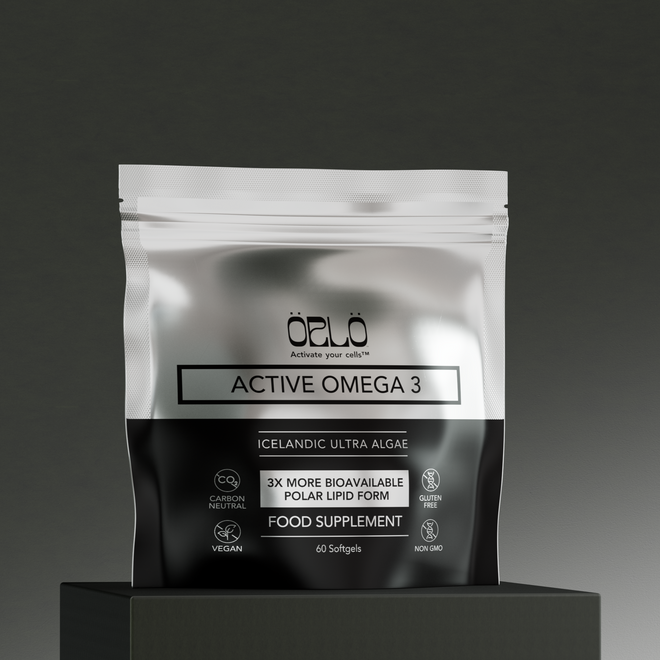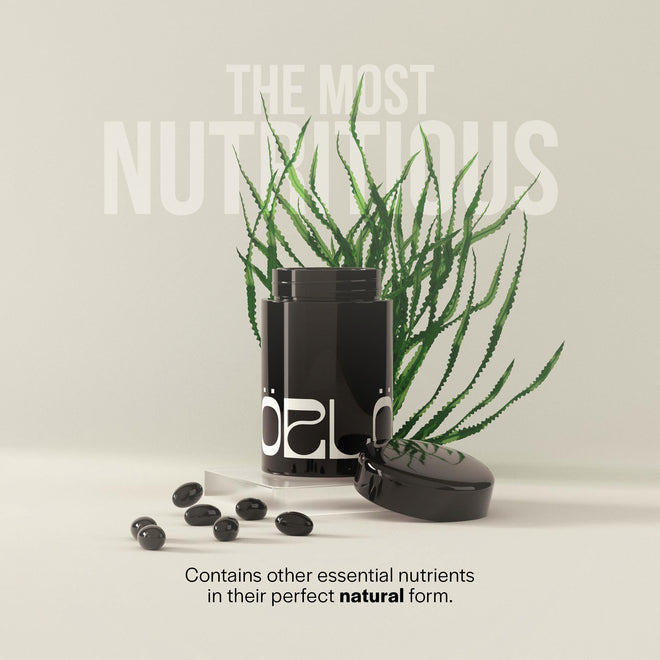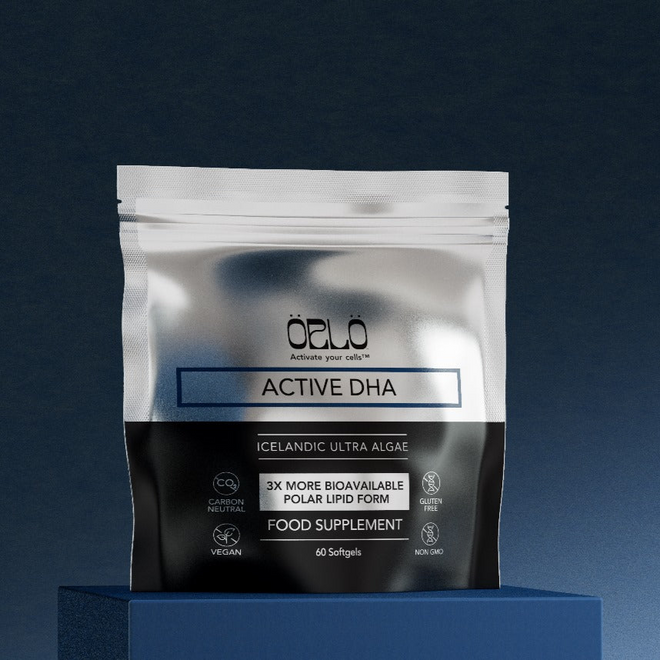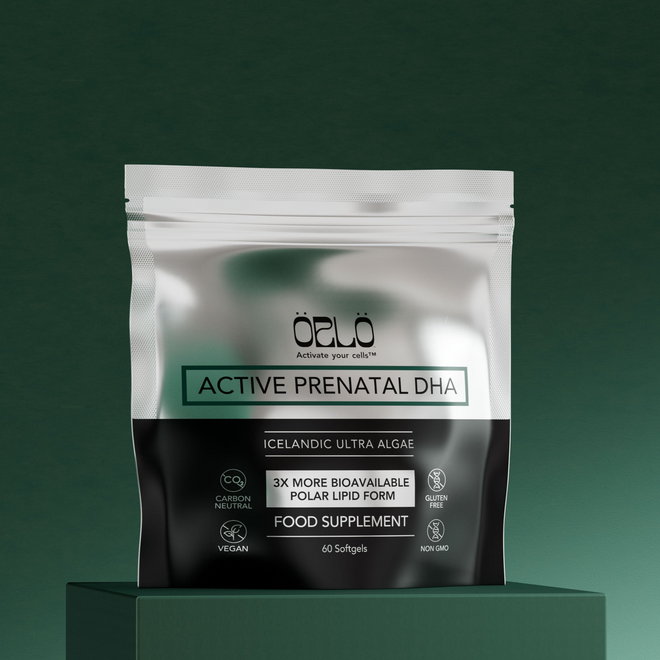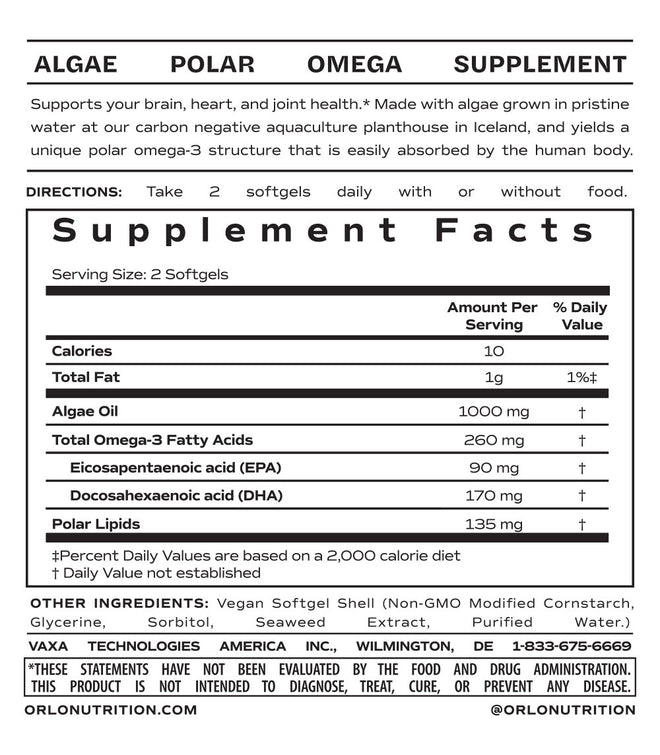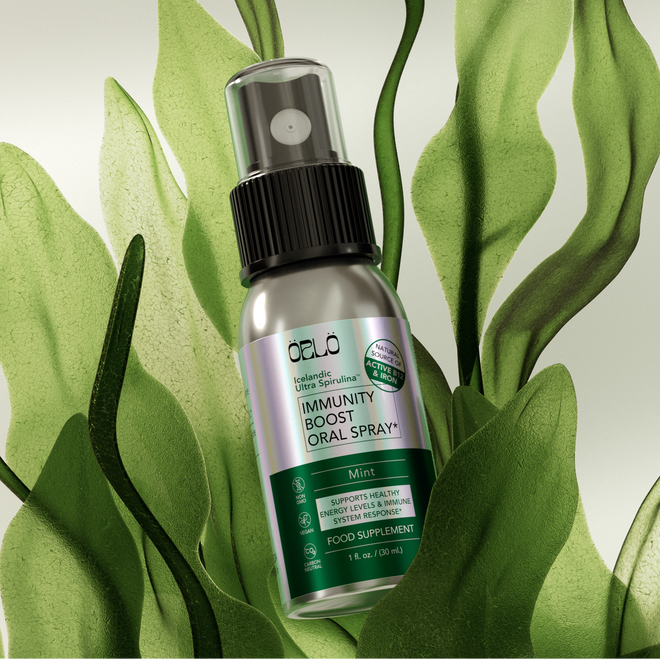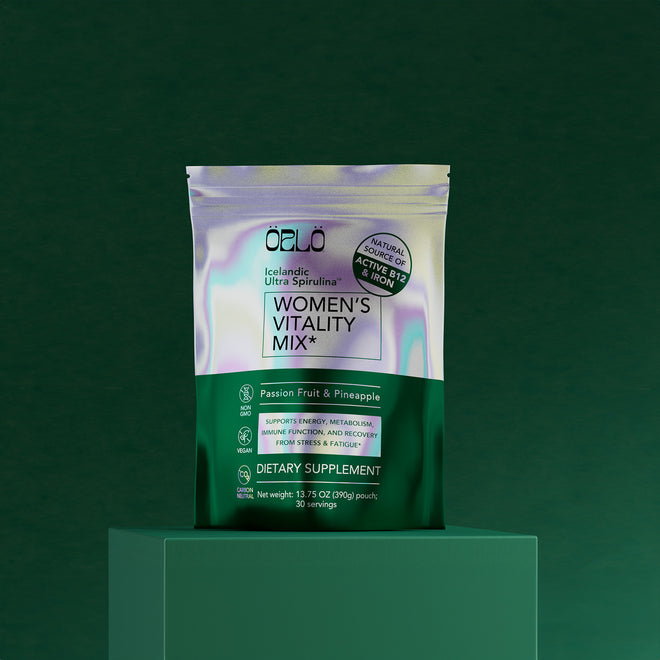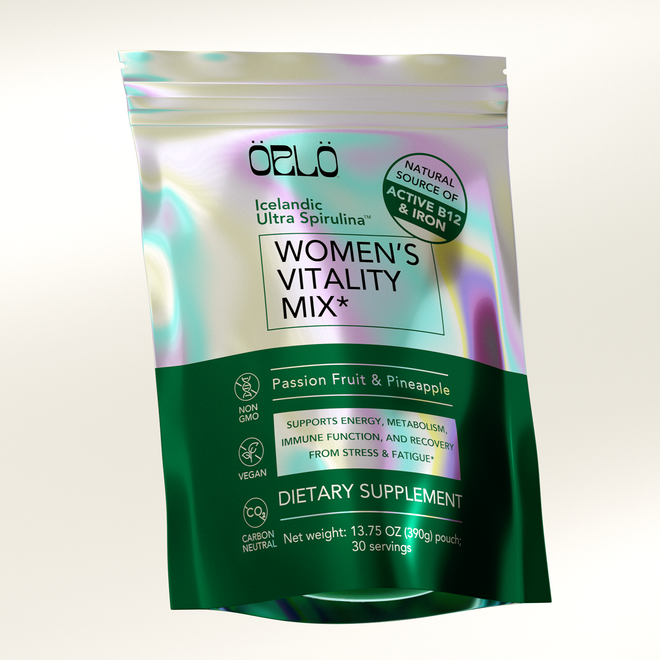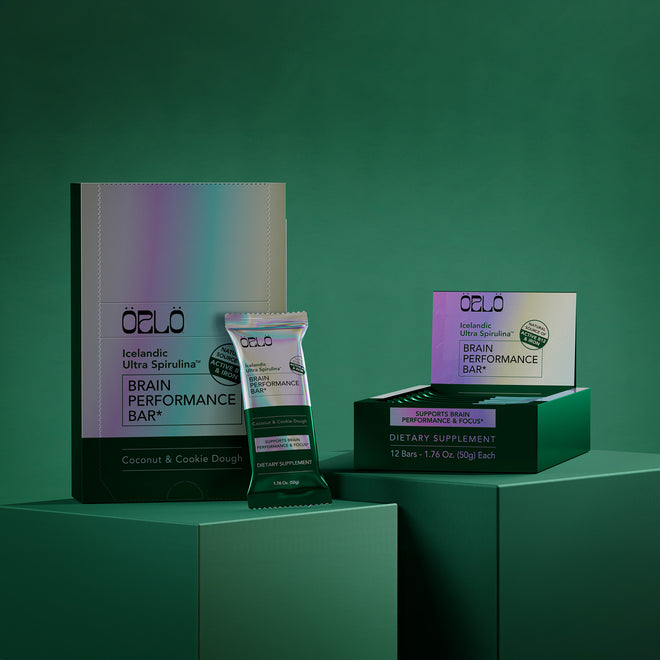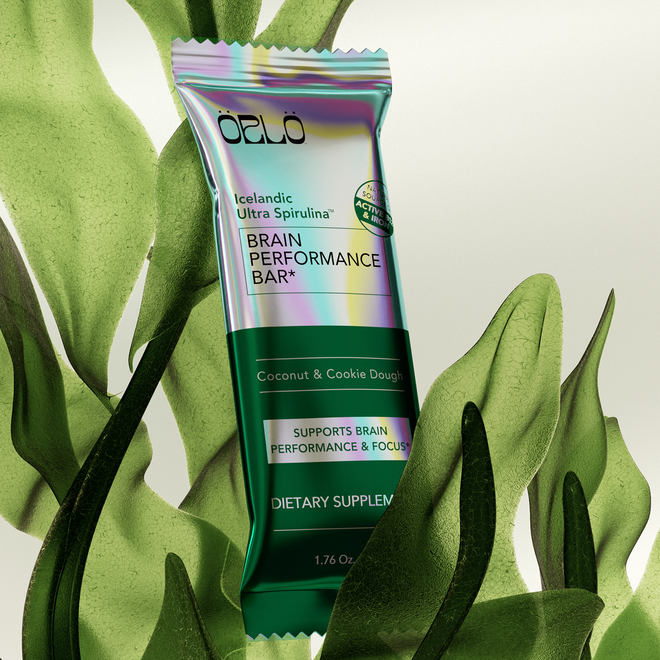Free shipping on purchases over $69
Fish-Free = Ocean-Friendly
Ocean-Friendly Nutrition and The Power of Algae to Regenerate Earth
In this article we examine the North American fish oil marketplace, the life cost of fishing for omega-3 production and its carbon cost. We further share a different perspective, one in which harnessing the power of algae, regeneratively grown using renewable energy can support more life through nutrient production and regenerate earth.
Benefits of The Mediterranean Diet
We’ve all heard that there are many benefits to a diet rich in seafood, the so-called “Mediterranean diet” that’s high in omega-3s, omega-9s (olive oil), and whole foods, while also being lower in omega-6 heavy cooking oils, refined sugars and carbohydrates. Health benefits of eating in this way range from improved insulin response, weight management, cardiovascular system health, a healthier mood, less pain, and greater longevity.
Pitfalls of Ocean-Based Nutrition
Many assume that eating a fish-based diet is healthier for them and the planet, but that’s not always the case. With microplastics in all our waterways and oceans, fish and animal meat consumption contributes to the credit card’s worth of plastic that most of us consume each week, with as yet unknown affects to our long-term health. Fish also bioaccumulate the toxins that enter our waterways and our oceans, and therefore fish oil made from them is distilled to remove the pollutants.
A less commonly known fact is that fish do not produce Omega-3s. They get their Omega-3 from it’s primer producer - algae, as it is accumulated up the food chain. (Source: https://www.liebertpub.com/doi/10.1089/ind.2017.29102.wmo)
Consuming algae-sourced omega-3s delivers many of the health benefits of a Mediterranean diet without the worries associated with fish sources -- and without the risk of overharvesting or overconsuming plastics and other pollutants.
Where Does Fish Oil Come From?
The humboldt current, off the coast of Peru is home to one of the largest fisheries in the world. Its nutrient dense, cold water creates a complex ecosystem that oceanic animals of all sorts rely on. Much of the world’s fish oil comes from this fishery, where pelagic fish (namely sardines and anchovies), are harvested for their nutrients. While some is packaged for human consumption, most of the catch is refined into fish oil for people and for fisheries. The leftover fish meal is used for animal feed and agriculture (fertilizers).
Fish oil is roughly 30% omega-3, primarily composed of docosahexaenoic acid (DHA) and eicosapentaenoic acid (EPA). But did you know that fish get their EPA and DHA from the algae they eat? Going straight to the source and consuming algae-based omega-3s is increasingly the choice for eco-minded people around the globe.
Did you know that the North American annual fish oil market is roughly 300,000 metric tons in 2021?

Source: http://latestmarketresearchupdate.blogspot.com/2018/11/fish-oil-market-size-to-reach-408.html
For every one-month supply of an omega-3 fish oil supplement with 30% EPA + DHA, 110 small pelagic fish (sardines and anchovies) are used. Higher potency omega-3 products that are concentrated may require even more. By shifting consumption to algae-based options, you are therefore saving 110 small-bodied pelagic fish (or more) with every month of supplementation.
The Undeniable Ecosystem Impact of Fishing - Trigger Warning for Dolphin Lovers
There is also an undeniable ecosystem cost to commercial fishing that isn’t hitting mainstream media. Even the most careful practices still result in depleting fish stocks from their typical abundance. Local fishermen with small operations report reduced catches, and some have reportedly begun looking at dolphins as if they are competition. The dolphin scapegoats are somewhat helpless, whereas large commercial fishing operations are untouchable. The cost of this reality is that fishermen in Japan, and in Peru have reportedly begun killing dolphins to reduce the perceived “competition” with the end goal of improving their fishing yields. In fact, off the coast of Peru, some 15,000 dolphins are illegally fished each year. Since there is no real market for dolphins that are so beloved by people around the globe, they are simply tossed into their watery graves and disposed of at sea.
Fishing as an industrialized practice is a very slippery slope with a real tangible effect on the livelihoods of people in fishing communities and the living ecosystems of our oceans. For more on this, you can watch the Netflix documentary, Seaspiracy. It may be triggering, but it is an incredible educational resource and a riveting watch.
Leave More Fish In The Ocean, Preserve Ecosystems + Sequester More Carbon
If we leave more fish in the ocean, there is another benefit that you might not have considered. The fish themselves sequester carbon in their bodies. They become food for larger animals that also sequester carbon. When they die and sink to the ocean floor, so too does their carbon where it is integrated into the lives of other microbes, crustaceans, and worms, continuing the cycle of life and keeping the carbon within the ocean as opposed to releasing it into the atmosphere through manufacturing and animal husbandry is one of the many methods proposed to help reverse global warming and regenerate earth.
The Carbon Cost of Fishing + The Power of Algae To Turn The Tide
Furthermore, the carbon cost associated with each metric ton of fish oil manufacturing is roughly 35 ton CO2-eq. Translating this figure to a one-month supply of Ӧrlӧ Nutrition’s algae oil, we are saving 1.1kg CO2-eq with every bottle as compared to fish oil. We can confidently claim this number because our unique growing conditions use regenerative energy. The algae is fed CO2, and produces oxygen as a co-product -- all without impacting marine ecosystems and utilizing only 1% of the water and land resources of other methods.
Turning to Supplementation for Omega-3s -- And Shifting From Fish to Algae
Many people now turn to omega-3 supplements to gain many of the health benefits of a mediterranean diet without having to dramatically change their lifestyles. Since omega-3s are used in every cell in our bodies, and since Western diets tend to be deficient in omega-3s, the health benefits of consuming a supplement range broadly from cardiovascular system health to brain, eye, joint, skin and metabolic health. A vast majority of the omega-3 consumed in North America comes from fish, and it is time for that consumption to shift from the extractive practices of fishing to the regenerative practices of primary Omega-3 production: growing and harvesting ocean and ecosystem friendly algae.
With every one-month supply of Ӧmega-3 and Prenatal DHA, Ӧrlӧ Nutrition saves 110 pelagic fish and 1.1kg CO2-eq.
